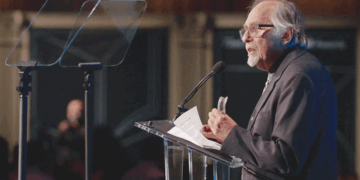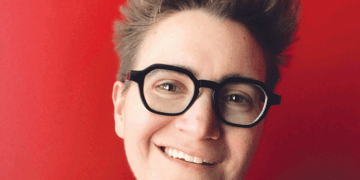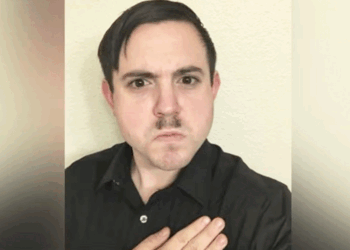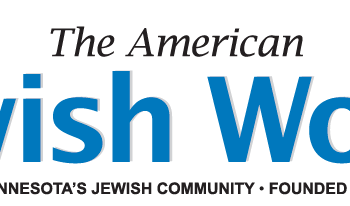As the American Jewish World goes to press this week, the results of the 2012 elections are unknown. Nate Silver’s FiveThirtyEight blog, for the New York Times, forecasted that President Barack Obama had nearly a 91 percent chance of being reelected. Silver, who aggregates public opinion polling to arrive at his numbers, gave Romney a .3 percent chance of winning Minnesota — roughly a 300-to-1 shot, which is not good odds.
For cognitive dissonance, you could tune in to Fox News, where Newt Gingrich and other pundits were predicting a Romney landslide. One could surmise that this putative scenario arises out of pure antipathy to the president, rather than any poll results or factual evidence. It is sad to note that a wide swath of white America is still uncomfortable with the reality of an African American in the White House. In 2008, John McCain won a majority of the white vote; however, Mitt Romney, who has scant support in the black and Latino communities, would need an even greater percentage of the white vote to win the presidency.
When you read this after Tuesday, you will know how things shook out. I predict that the political rancor will not end this week.
In our Jewish community, however, there seems to be a growing comity around discussion of Israel. Specifically, synagogues and mainstream Jewish organizations are more ready to address certain critical issues that threaten to imperil the Jewish state’s future. On Oct. 24, Beth El Synagogue hosted a talk by Talia Sasson, who was touring the United States on behalf of the New Israel Fund (NIF).
The event was co-sponsored by Adath Jeshurun Congregation, and Rabbi Harold Kravitz was in attendance; the Jewish Community Relations Council also was among the sponsoring groups.
In his d’var Torah before Sasson’s address, Rabbi Alexander Davis, senior rabbi at Beth El, referred to the recent arrest of Anat Hoffman, director of the Reform movement’s Israel Religious Action Center in Jerusalem, who committed the crime of reciting the “Shema” and wearing a tallit at the Kotel, the Western Wall Plaza. Hoffman reported that she was roughly handled and humiliated during her jail stay (10-26-12 AJW). Davis led the predominantly Jewish gathering in singing the “Shema.”
In the way of background, NIF campaigns for equality and democracy in Israel. This entails advocacy on behalf of Arab and Bedouin communities, non-Orthodox streams of Judaism, African refugees, and against the exclusion of women from the public sphere. For its efforts, the right-wing faction in the Knesset has attempted to impose stiff taxes — up to 45 percent — on foreign donations to NIF and other groups focused on civil and human rights.
Sasson is known in Israel as the author of a 2005 report on illegal West Bank settlements and outposts. This report was commissioned by then Prime Minister Ariel Sharon, and endorsed by the Israeli Cabinet.
Although the High Court of Israel has ruled that certain West Bank outposts violate the law, these Jewish settlements have thrived for many years through the collusion of various Israeli government agencies: they benefit from the construction and maintenance of roads, the provision of water and electricity, educational funding and IDF security.
Sasson, who served in the IDF and 25 years in the State Attorney’s office, was forceful in her remarks about how the continued Israeli occupation of the West Bank is having a corrosive effect on Israeli society. She sketched out the situation of 340,000 Jewish settlers living among 2.6 million Palestinians, who have “no political rights.”
She talked about the “pricetag” campaign perpetrated by a violent segment of settlers, who retaliate against any government attempt to limit illegal outposts or settlements with arson attacks on mosques and churches. Sasson mentioned the September attack on the Latrun monastery west of Jerusalem. Following the evacuation of an illegal Israeli settlement in the West Bank, vandals set fire to the door of the Trappist monastery and spray painted graffiti reading “Jesus is a monkey” by the entry.
On the situation of women — again, the meeting at Beth El took place just days after Hoffman’s arrest at the Kotel — Sasson was impassioned about the “phenomenon of the exclusion of women” from public places in Israel. She told the story of her daughter traveling on a bus to her IDF base near Tsfat, and being ordered to sit in the back by ultra-Orthodox men. Sasson’s daughter was alone and felt intimidated so she complied; her mother was quite angry upon hearing the story.
“The situation is very difficult,” said Sasson, who finds Israel generally to be a “wonderful place.” She told her American Jewish audience, “We must fight for democracy.”
Increasingly, the liberal Jewish streams are listening to this message and doing what they can to strengthen the vitality of democracy in Israel. Talia Sasson is worried about the legacy that is being passed down to her children; Jews in the Diaspora should be concerned, too.
— Mordecai Specktor / editor@ajwnews.com
(American Jewish World, 11.9.12)



















